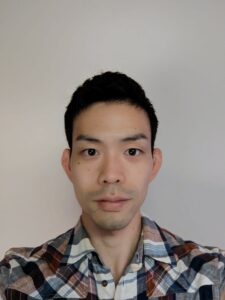Interviews, Nanotechnology at Northwestern, Other
Meet Ken Miyazaki, Northwestern’s First Ratner Fellow
July 18, 2023
 Ken Miyazaki is a member of The Tempelaar Team and the first recipient of the Mark Ratner Fellowship.
Ken Miyazaki is a member of The Tempelaar Team and the first recipient of the Mark Ratner Fellowship.
“With Ken’s arrival at Northwestern, things fall into place beautifully. Barely graduated, Ken has already accumulated expertise in molecular dynamics, electronic structure theory, and quantum dynamics. Moreover, he is as well versed in method development as he is in applying theoretical methods to better understand experiments.
All of this grants him a unique and fresh perspective on materials research, and I believe this to be very much in the spirit of Mark Ratner, who referred to himself as a theoretical materials chemist long before this term became fashionable. By establishing a direct link with Mark’s legacy, the Ratner Fellowship is providing the ideal conditions for brilliant young scientists like Ken to grow and thrive, and I consider Ken, with his adventurous and broad theoretical interest to be an ideal inaugural candidate.” – Roel Tempelaar; Principal Investigator, Tempelaar Team
Where are you originally from?
I was born and raised in a state in Japan called Kumamoto, a state known for its superb horse meat and its adorable mascot; a black bear with big red cheeks.
Where did you complete your undergraduate degree?
I got my bachelor’s in chemistry at the University of Wisconsin-Madison.
How does it feel to be the first Ratner Fellow?
I feel very honored and humbled to be the first recipient of the Ratner fellowship. It makes me feel responsible for my commitment all the more strongly than before. It has already been and will continue to motivate me to propel my work forward.
When did you first become interested in chemistry?
It was in my second year in high school when I started to enjoy chemistry and science in general. Then, a book I read right before I came to the U.S., titled Environmental Chemistry and describing possible applications of chemistry to solve various environmental problems on earth, got me hooked, and made me decide to study it in the long term.
How do you explain what you study to non-scientists?
When I describe my research to my family and friends, I say that I use simulations to understand the fundamentals of every chemical reaction and, in general, try to answer such questions as how and why those reactions happen, how fast or slow they happen, and whether we can predict the outcome of them.
What has inspired you to focus on the fundamental side of chemical reactions, and what do you hope to achieve?
I have always wanted to understand the fundamental sides of chemical reactions, which triggered my interest in quantum mechanics and the dynamics of underlying atoms and molecules. I can’t name much specific that I want to achieve, but I want to continue to live as a researcher and tackle science problems that come up on the way.
What has been a highlight of your time at Northwestern? How has the adjustment been?
It has been refreshing and energizing to meet new lab mates and co-workers and learn about their knowledge and skills in fields different from what I got used to. Especially each of our offices is shared by members from different research groups, which has been a new experience for me. I am excited about the unique learning opportunities this environment will offer me.
What has been the most challenging aspect of your work or your time at Northwestern?
In my PhD study of ab initio quantum dynamics, translating theoretically cool ideas into something practical that can be applied to real chemical systems has always been challenging. The difficulty lies in devising reasonable approximations of theories to go beyond simulations of model systems while retaining its accuracy above a certain level to capture quantum effects present in chemical systems.
Can you tell me about your experiences either being mentored or mentoring others?
I have learned a lot both from my mentors and by being a mentor. My senior graduate student, whom I used to pester all day for explanations and advice on my projects, always taught me things with patience and dedication, which I try to copy when it comes to my turn to teach others. On the teaching side, I enjoyed teaching students quantum mechanics as a graduate student. It was very rewarding to learn that the more dedication I make, the more students reciprocate.
What are your hobbies outside of the lab?
I am a rock climbing enthusiast and go to a climbing gym in Chicago multiple times a week. I also enjoy playing the piano and the guitar when I am at home and not doing chemistry.